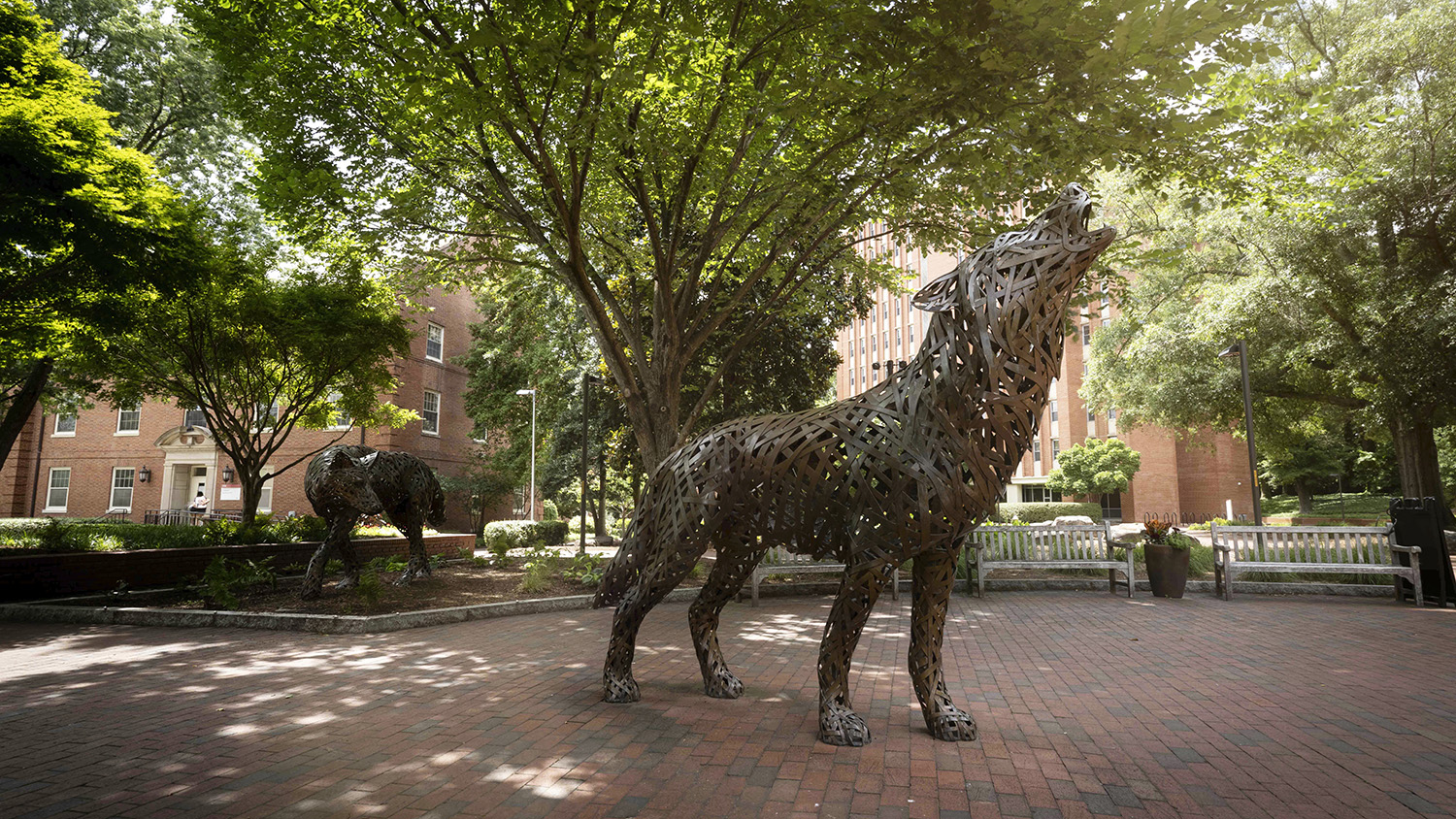Welcome Back Faculty
Dear Faculty Colleagues,
Welcome back to campus for the 2022-23 academic year. This is one of the most exciting times of the year as we welcome new and returning students and a large number of new faculty to NC State. Wolfpack Welcome Week is well underway, and I hope you’ve had some time to get involved in the activities around campus. Our first-year students began arriving last week, and with your hard work and dedication, they will become successful graduates of the class of 2026.
The new academic year is already off to a great start! This fall, NC State enrolled the largest number of incoming first-time, first-year students, with over 5,600 arriving this week from 98 North Carolina Counties, 43 states and 41 countries. On top of that, 19 percent are first-generation students, up 2% from last year. The cohort is academically well-prepared, with a weighted high school GPA of 4.31. In addition to this sizeable incoming cohort, we are also excited to welcome over 1,300 transfer students to campus.
As a bookend to Commencement, New Student Convocation was held on Sunday, August 21, for our first-year students, which was a great success. We were excited to have NC State faculty member Kofi Boone, FASLA, Joseph D. Moore Distinguished Professor of Landscape, speak about the importance of students engaging with their faculty. It was wonderful to see and feel the excitement of our students as they embark on the beginning of their NC State careers.
Events continue throughout Wolfpack Welcome Week, the most important being the start of your classes. We encourage you to enjoy some of the activities throughout the week. We also encourage you to attend the return of Packapalooza, celebrating its tenth anniversary.
We encourage you to consider a few items as you prepare for the new academic year. One of our primary goals at NC State is ensuring student success. With that in mind, we want to remind you again of what you already know: you, the faculty, have the primary impact on our students and their progress. We urge you to discuss the following topics with your students during the first week of class, especially with our first-year students who may not yet understand what it takes to succeed in a college environment.
Attendance
- Regular class attendance provides a strong indicator of student academic success. Students who are missing classes are less successful. Remind your students that classroom activities remain equally important to outside assignments and often cover material students can’t get elsewhere.
- Excused absences – please review the Attendance Regulation – REG 02.20.03
- Instructors must take attendance in 100- and 200-level courses.
- The policy covers excused absences, including student representation of the university (e.g., Athletics), military commitments, religious observances, and personal reasons, such as death or illness in the family.
- You must provide a fair and equitable arrangement for students to make up assignments for excused absences. Simply dropping an exam score can put a student at a disadvantage compared to other students in the class.
- We encourage you to review the Absence Verification website for information on anticipated and unanticipated absences.
Classroom Engagement
While moving through the semester, consider discussing with your students:
- How they can engage in and out of class with you, their classmates and the material covered. Discuss your expectations with your students.
- How to prepare for class to make their classroom learning more productive.
- The importance of office hours as a means to engage with you.
Academic Integrity
Integrity — in the pursuit, creation, application, and dissemination of knowledge is a key value at NC State. Please consider using the Pack Pledge on your syllabi, assignments, exams, and any other academic evaluations. The Pack Pledge states, “I have neither given nor received any unauthorized aid on this test or assignment.”
If a student violates that pledge or participates in any form of academic misconduct, it is your responsibility to hold the student accountable. If a student engages in this behavior in your class, there is a strong chance it will, or has, occurred in another. Please talk to your students about the importance of being contributing, ethical members of this community of scholars. For assistance in promoting academic integrity and addressing violations, please contact the Office of Student Conduct.
Academic Support
Your students may need extra academic support outside of class. Resources available to them for academic support that you or others can offer include:
- Office hours
- Tutoring, including the Academic Success Center
- College/departmental advisors and support services
- DASA’s Academic Advising Services
- Use of the Navigate NC State advising platform. Record your advising notes there.
- Students with documented disabilities may need reasonable accommodations for equitable educational access. If a student requests accommodations without documentation from the Disability Resource Office (DRO), please contact the Disability Resource Office for assistance.
Student Wellness
Please remember that while students strive for success, they may encounter mental and physical health situations that may detract from their ability to thrive in an academic atmosphere. These situations are a continuing problem on our campus and other campuses nationally. If you have a student who is struggling in your class, especially during the beginning of the semester, please consider submitting an Academic Progress Report through your course roster in MyPack.
If you have a student exhibiting concerning behavior, please take one or more of the following steps:
- Refer the student to a CARES Case Manager through our NC State CARES Team. We can assist students who may be having difficulties, and you will also find many resources that may be useful to you as you work with your students.
- If a student is in severe emotional distress, please refer the student to the Counseling Center, and if your concerns warrant it, escort the student to the center.
If you become aware of a student experiencing food, housing, or financial insecurity, please encourage them to check out the Pack Essentials website for a listing of basic needs support. If they want to discuss their situation and review available resources, they may do so in a confidential meeting with the Student Ombuds.
Finally, I encourage you to include emergency information in your syllabus. The Department of Emergency Management and Mission Continuity developed examples for review that are located on the Faculty Resource page of Emergency Management and Mission Continuity’s website, with new information posted regularly. Below is a recommended paragraph for quick reference:
- Emergency Preparedness: Familiarize yourself with the building(s) that you frequent. Know the layout, including exit locations, stairwells and the Emergency Assembly Point (EAP). Review the “Quick Guide for Emergencies” that is found near the door in many classrooms for specific emergency information and instructions. If the quick guide is unavailable in your classroom or for additional information, visit wolfalert.ncsu.edu or go.ncsu.edu/EMMC. To receive emergency notifications, make sure your information and cell phone number is up-to-date in MyPack Portal.
- To report an emergency: call 911 from a campus landline or 919-515-3000 from a cell phone while on campus.
Thank you for being an integral part of the success of NC State students. We look forward to an engaging and productive 2022-2023 academic year. Please visit our website for information and resources to help your students become successful and productive NC State citizens.
I wish you all the best for the academic year!
Doneka R. Scott
Vice Chancellor and Dean
Division of Academic and Student Affairs
- Categories:


